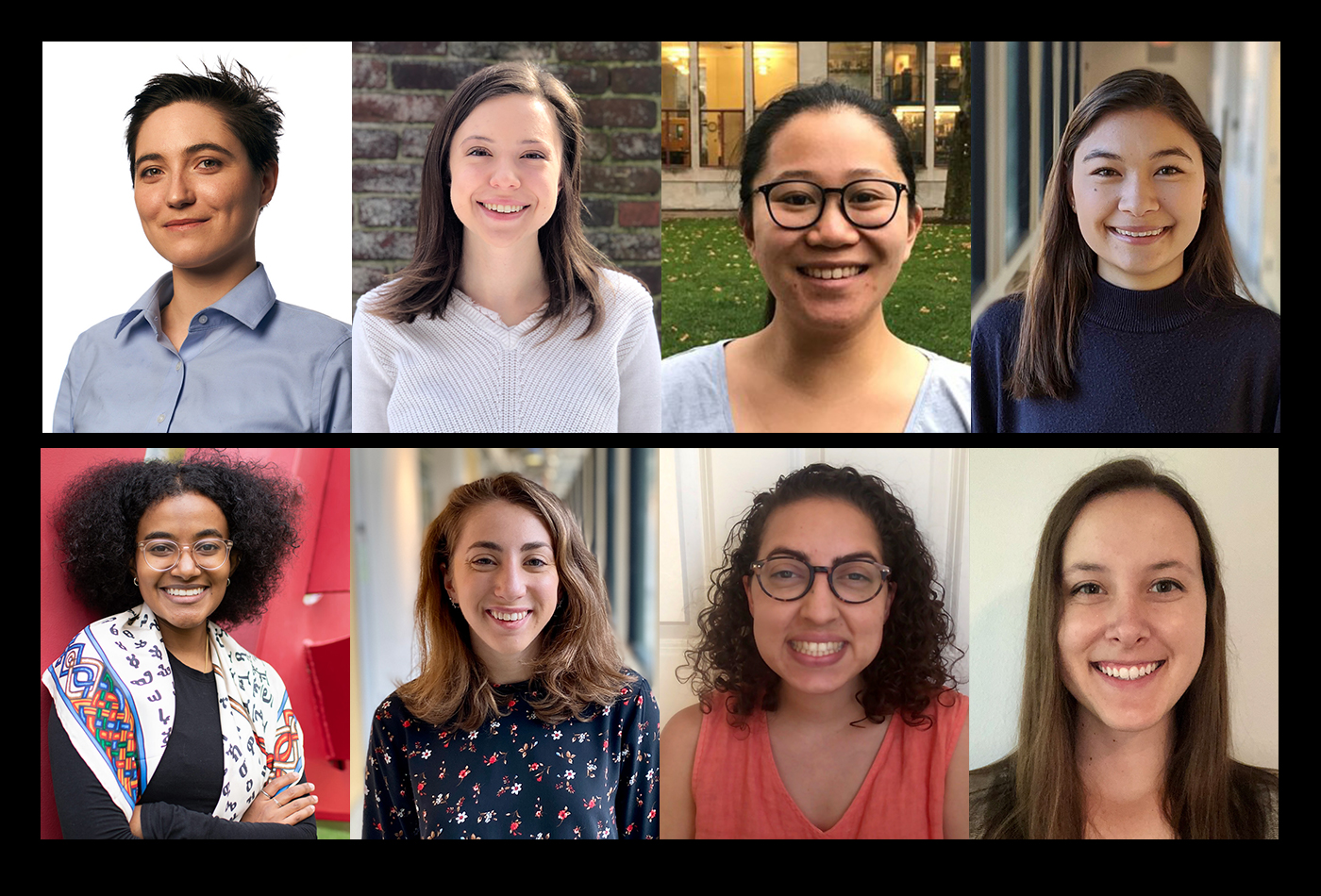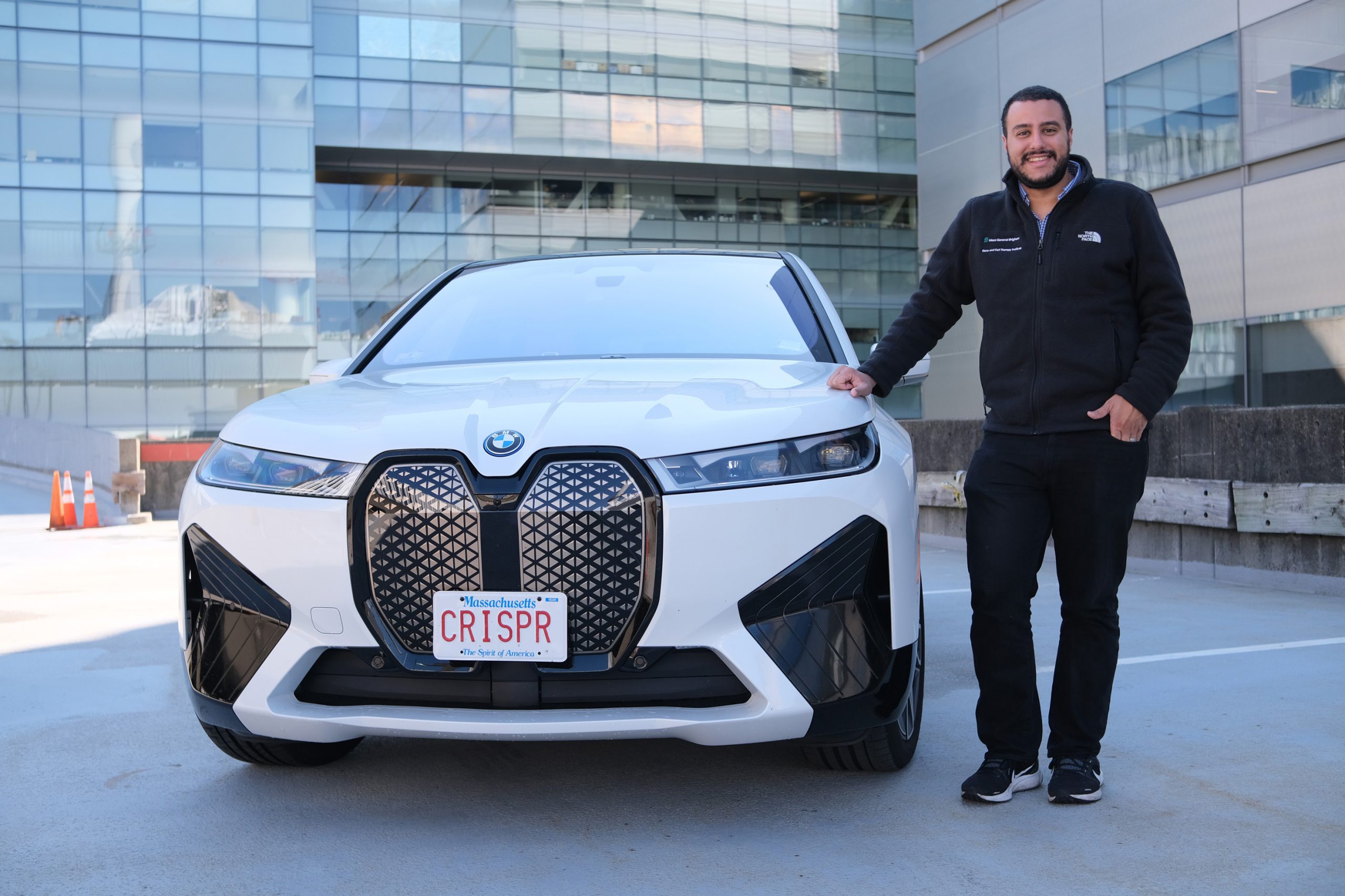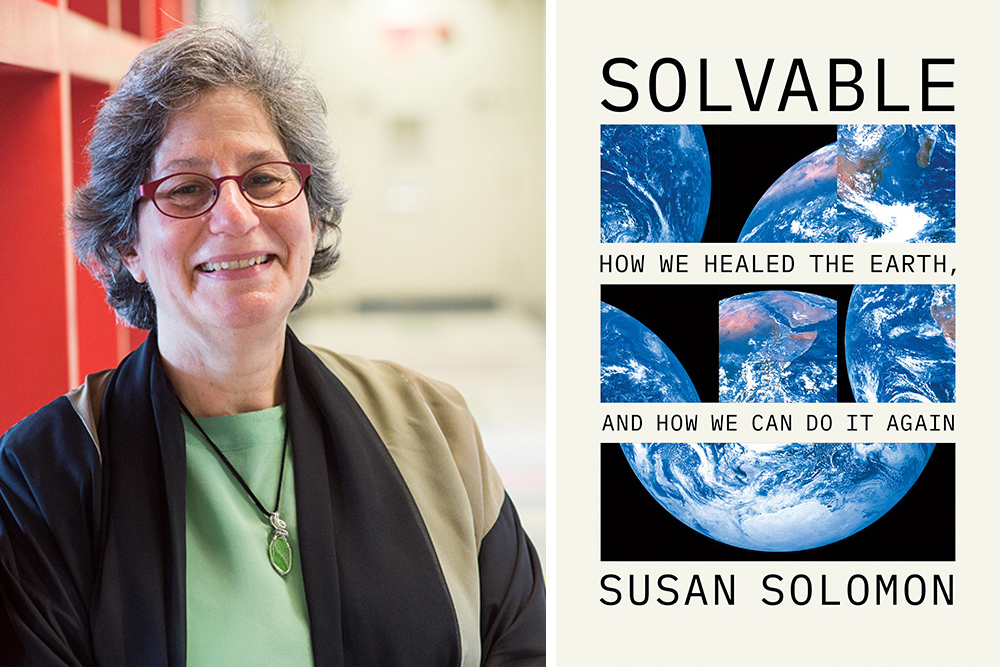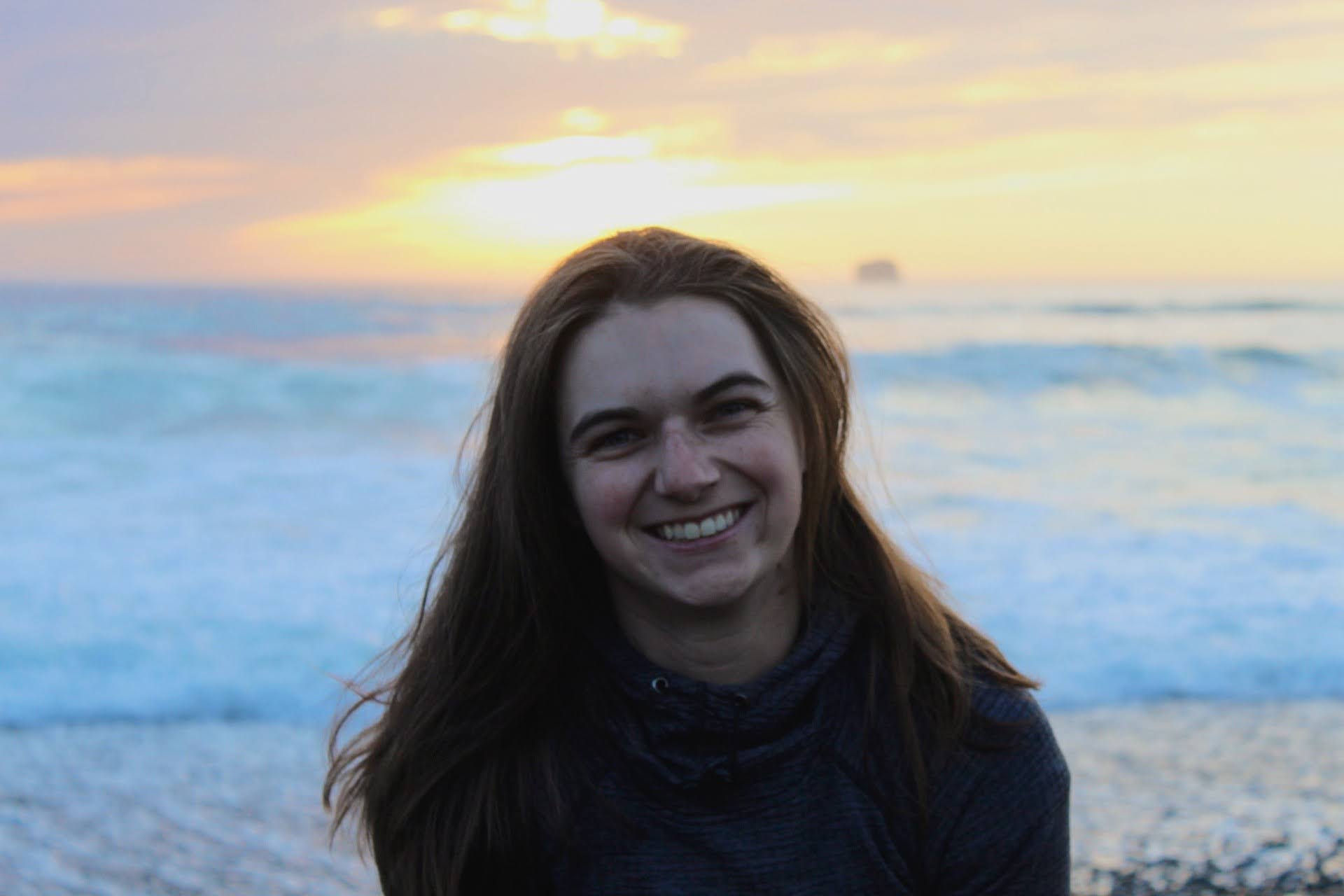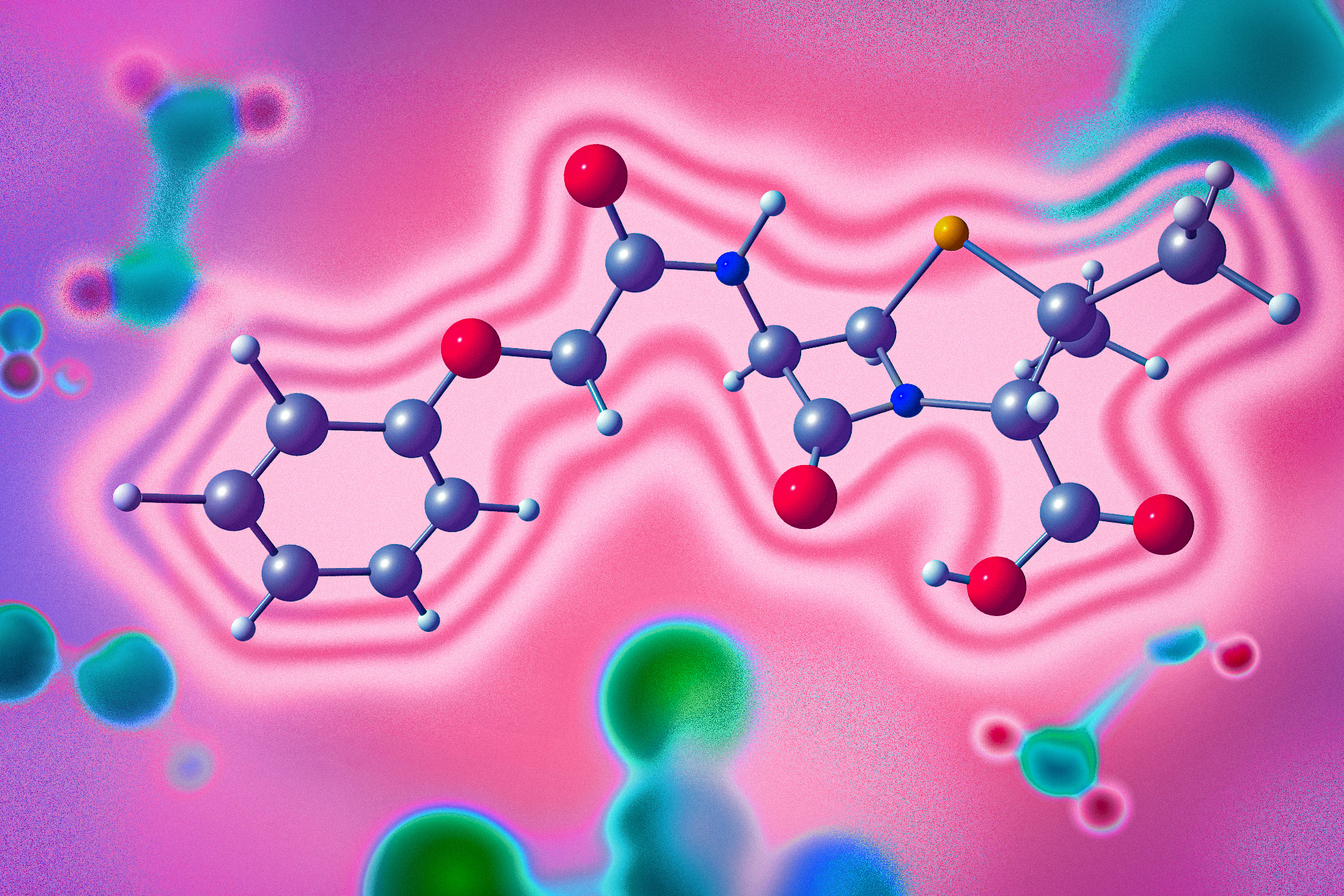Eight from Chemistry named 2023 Graduate Women of Excellence
The 40 Graduate Women of Excellence, chosen from departments across the Institute, were honored with a celebration and poster session on May 8.
Eight exceptional graduate students from the Department of Chemistry were recently named Graduate Women of Excellence for 2023.
Charlotte Farquhar, Natalie Golota, Angela Lee, Valerie Lensch, Amanuella Mengiste, Stephanie Smelyansky, Francesca Vaccaro, and Katherine Walker were chosen for their leadership among their peers, their dedication to improving the MIT graduate student experience, their thoughtful and constructive feedback, and their ability to catalyze change.
These remarkable students, along with their fellow honorees from departments across the Institute, were celebrated with a reception and poster session on May 8, 2023.
Charlotte Farquhar
Charlotte Farquhar, who received a Spring 2022 Mentorship Spotlight Award from the Department of Chemistry, earned her Bachelor’s Degree from Duke University, and grew up in Washington, D.C. (near the Smithsonian National Zoo, where she worked in high school). After completing her undergraduate studies, Farquhar spent a few years working as an analytical chemist at RTI International in Durham, North Carolina. Now a member of Professor Professor Brad Pentelute‘s lab, Farquhar’s research centers around delivering medications where they need to go in the body. The group uses peptides and mini-proteins to bring drugs across biological barriers and into their target tissues, which increases drug potency and reduces side-effects. They’re creating peptides that can deliver chemotherapeutics to brain tumors and target gene therapies to the nuclei of muscle cells. She currently collaborates with a company in the Cambridge area, Sarepta Therapeutics, where her work directly impacts the progress of drug development towards treatments for Duchenne Muscular Dystrophy. In addition to her research, Farquhar is involved in Women+ In Chemistry (WIC+) and the Chemistry Graduate Student Committee (CGSC) as a general member/event coordinator, and is currently the president of the Chemistry Alliance for Diversity and Inclusion (CADI) (having been a board member since its inception in 2018). She is also a member of the Chemistry Department’s Diversity, Equity, and Inclusion Committee (DEIC). In the future, Farquhar hopes to work at a company where her work can help make a difference in patients’ lives.
Natalie Golota
Natalie Golota grew up outside of Ann Arbor, Michigan and attended Washington University in St. Louis, where the opportunity to conduct undergraduate research inspired her to pursue a PhD in the research group of Professor Robert Guy Griffin. Golota enjoys the challenge of drawing from broad and diverse subject areas including mechanical and electrical engineering, chemistry, physics and biology to build new instrumentation for new solid-state nuclear magnetic resonance (NMR) experiments. Her current research is focused on how to improve the study of amyloid fibrils, which are implicated in the development of Alzheimer’s disease. During her time at MIT, Golota has worked on a variety of projects ranging from spin dynamics and electron-nuclear polarization transfer methods to developing diamond laser micromachining techniques at the MIT Center for Bits and Atoms. She has also been involved in leading the Graduate Women at MIT mentorship program, which facilitates small mentoring groups between MIT female alumni and graduate women at MIT. This program fosters an inclusive environment that supports graduate women in professional development and mental health, and creates a community outside of the lab at MIT. After graduation, Golota looks forward to transitioning into venture capital and focusing on the acquisition and further development of new hardware technologies for the government. She hopes to make a positive impact on public-private partnerships in Washington DC and across the country. Long-term, she may eventually start or help lead a company that works toward cleaner energy generation or power transmission. In this role, Golota hopes to facilitate a meaningful impact by applying her passion for hardware development to one of the most pressing problems facing our modern society.
Angela Lee
Angela Lee, a NSF Graduate Research Fellow in Professor Gabriela Schlau-Cohen‘s lab, earned her bachelor’s degrees in Chemistry and Philosophy from University of California, Berkeley. Lee was a recipient of the Department of Chemistry’s Service Award in 2022, and has served on the Chemistry Quality of Life Committee.
Valerie Lensch
Valerine Lensch grew up in California and attended University of California, Santa Barbara, where she received her B.S. in Chemistry and Biochemistry. During her undergraduate studies, Lensch had the opportunity to study a wide range of topics in drug delivery, synthetic materials chemistry, and disease transmission with scientists in the US, Netherlands, and Kenya. These diverse research experiences inspired her to pursue interdisciplinary research in the field of chemical biology. During her graduate studies, as a member of Professor Laura Kiessling‘s lab, Valerie is developing therapeutic vaccines against cancer. Outside of her research, she is an Award for Outstanding Teaching Honoree, and is focused on improving diversity and mentorship in our department and the field of chemistry more broadly. To this end, she has served on the executive board of the MIT Chemistry Alliance for Diversity and Inclusion (CADI) both as secretary and event coordinator to plan events catered towards building a community for underrepresented minorities in the Department of Chemistry. Lensch has also had the joy of mentoring undergraduate students from across the globe as a MIT Summer Research Program (MSRP) Pod Leader. She hopes that her research will help provide new and accessible therapies for globally important diseases as well as aid in the development of vaccines against diseases for which vaccines still do not exist.
Amanuella Mengiste
Originally from Addis Abeba, Ethiopia, Amanuella Mengiste earned her SB from Princeton University, and was drawn to a PhD in Chemistry due to the idea that researchers now have the power to alter biology to make things that could be deeply impactful in medicine, agriculture, climate change mitigation, and more. As a member of Professor Matt Shoulders’ group, Amanuella’s research aims to use the lab’s human cell-based directed evolution platform to study and alter proteins that require the mammalian cellular substructure to be produced, processed and transported properly. In particular, she is interested in evolving proteins that have research, biotechnological, or biomedical applications. Upon completing her PhD, Mengiste plans to undertake postdoctoral work after graduation and beyond that, establish an independent career in academic research. She hopes that work brings more and more people into science (by virtue of collaborations and mentorship), bridges the divide between the scientific community and the general public, engages with key societal questions/challenges of our time, and of course, leads to the improvement of as many lives as possible.
Stephanie Smelyansky
Stephanie Smelyansky grew up in the suburbs of Chicago, and received her BS in Molecular Biophysics and Biochemistry and in Chemistry in 2019 from Yale University. During her undergraduate training, Smelyansky became fascinated with chemical biology and with the ability to use chemical tools to manipulate and study biological systems. She decided to pursue a PhD in chemistry because a chemistry PhD would equip her with the wide variety of skills and knowledge necessary to really investigate biological pathways at the molecular level. At MIT, Smelyansky has been the recipient of a Department of Chemistry Service Award and is an Award for Outstanding Teaching Honoree. She has served on the WIC+ executive board for three years, one year as treasurer and two years as co-president. She has been heavily involved in planning much of the professional development and social programming in WIC+ for the last several years, was on the planning committee for #ShutDownSTEM for three years, and served as one of the leaders for the transition from a virtual to an in person #ShutDownSTEM symposium in 2022. Outside of the Chemistry Department, Smelyansky has been an editor of the MIT Grad Blog through the Office of Graduate Education (OGE), where she works with graduate students from across MIT to develop content for the blog. As a member of Professor Laura Kiessling‘s group, Smelyansky develops new strategies for studying Mycobacteria tuberculosis, the bacteria that causes tuberculosis infection. She would love for this research to one day lead to new discoveries that impact treatments for tuberculosis, or to leverage the findings from her PhD to develop new diagnostics for tuberculosis. Outside of research though, Smelyansky hopes to create a positive impact on the communities of which she’s a part, and to ensure that everyone feels valued and supported.
Francesca Vaccaro
Francesca Vaccaro comes to MIT from Orange County, California, and earned her Bachelor’s degree in biochemistry from Loyola University New Orleans. While at Loyola, Vaccaro was introduced to research by Professor Lynn Koplitz, and worked in her lab for three years. Vaccaro credits this experience and mentorship to setting the stage for her pursuit of a PhD in chemistry. Vaccaro’s research in Professor Catherine Drennan‘s lab focuses on structurally characterizing the final step of Adenosylcobalamin(AdoCbl) delivery and repair in humans. She is using x-ray crystallography and electron microscopy to visualize the structure of the final AdoCbl-dependent mutase in complex with its G-protein chaperone to understand how the molecular interactions inform the function the enzyme and associated disease phenotypes of Methylmalonic Aciduria. Upon her graduation from MIT, Vaccaro will begin postdoctoral research at Duke University in the lab of Professor Katherine Franz (PhD ’00), where Vaccaro plans to investigate Cu homeostasis mechanisms in Candida albicans; beyond that, she intends to pursue a position as a professor at a primarily undergraduate institution. Vaccaro, the recipient of a 2020 RISE Award, has served as a GRA for two years for the sorority Delta Phi Epsilon, has been a member and served a two year term as President of the Chemistry Alliance for Diversity and Inclusion (CADI), and has been involved with Chemistry Application Mentorship Program (CAMP) since its inception. Vaccaro was an MSRP pod leader for summer of 2021 and also participated in reading applications. Last but not least, she was involved with the creation, planing and execution of #shutdownSTEM (now #shutdownChem) starting in 2020. Outside of the lab, Vaccaro hopes that she has contributed to creating a department where it is great to do science and to also be a scientist, no matter your background and identity. Her goal is that some of the initiatives and conversations of which she has played a role have built on the work of others specifically of women and people of color, can provide the foundation for the next group of graduate students to continue to expand equity and inclusivity at MIT. Inside of the lab, she hopes that her discoveries will foster additional answers to questions on these complicated systems.
Katherine Walker
Katherine Walker, a Fall 2022 recipient of the Department of Chemistry’s Mentorship Spotlight Award, grew up in Los Angeles, California and completed her undergraduate degree at Wesleyan University. After spending a few years working in biotech, she realized that she wanted to pursue a PhD in order to obtain a similar depth of knowledge of chemistry as her colleagues, who all had doctoral degrees. A member of Professor Mohammad Movassaghi’s group, Walker’s research focuses on the synthesis of biologically active alkaloid natural products in conjunction with the discovery and development of new reactions for organic synthesis. Upon her graduation, she plans to work in the pharmaceutical industry doing early-stage drug discovery, developing better, safer drugs to treat diseases in the future. In addition to serving as an Environment, Health and Safety (EHS) representative for the Movassaghi Lab, Walker has taught ESP (educational studies program) classes for high school students, been a WIC+ mentor, and taken ceramics classes at the Student Art Association during her time at at MIT.

